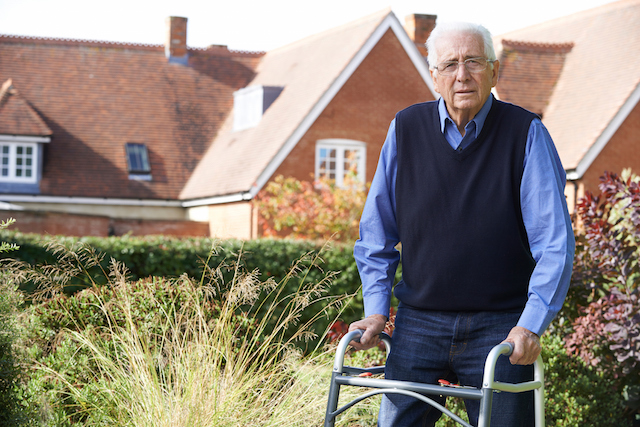
In many cases, the nursing home residents were prescribed Seroquel, a powerful antipsychotic medication that is typically used to treat schizophrenia. Pharmacists would routinely overlook or approve prescriptions of the drug at unsafe levels and would approve the prescribing of other drugs that could interact harmfully with Seroquel.
In an especially egregious example, a woman with a history of seizures was prescribed Seroquel, which medical research has linked to an increase in seizures if prescribed along with other antipsychotic drugs. In addition, the woman was given Trazodone, an antidepressant linked to seizures in elderly patients, and an additional antipsychotic, Risperdal. The combination of Risperdal and Seroquel, according to investigators, can cause potentially fatal irregular heartbeats.
The pharmacist who was responsible for reviewing this woman’s prescriptions admitted to investigators that he had not caught the prescription errors or documented the inappropriate use of the drugs on the woman’s chart.
Consulting Pharmacists Routinely Fail to Catch Errors
Under California law, pharmacists in charge of monitoring the medication of nursing home residents – called “consulting pharmacists” – must review patients’ charts monthly. Having checked the patients’ medications, the consulting pharmacist must recommend to the prescribing doctors which medications should be stopped, reduced or changed to prevent patents from experiencing adverse side effects.
The investigations found that pharmacists did not identify the inappropriate use of antipsychotic medications 90 percent of the time, and linked the repeated insufficient reviews of nursing home patients’ medications to a failure of nursing homes to pay the fair market rate for the pharmacists’ services. It was concluded that this encouraged pharmacists to make drug recommendations according to financial incentives, instead of the patient’s needs.
Civil Liability of Nursing Homes
A nursing home or its employees such as pharmacists can be held civilly liable for injuring their patents through negligence or abuse. The most common instances where an owner or employee of the nursing home can be held liable are:
- Negligent hiring or retention of employees
- Negligent maintenance of the property and premises
- Negligent supervision and care of the patients
- Negligent maintenance or selection of equipment
In any of the above instances, a plaintiff, or the party that is injured, must prove that the nursing home was negligent in order to successfully recover damages. The same is true for the negligence of pharmacists and in
medical malpractice cases. In order to prove negligence, the plaintiff must prove all of the following:
- That the nursing home’s owners or employees breached a duty of care to the patient
- That the plaintiff was harmed by this breach
- That the nursing home’s conduct caused the harm
Duty of Care and Breach
California, like many states, has enacted statutes and regulations that set out the minimum level of care that nursing homes must provide. If the nursing home fails to provide this care, then it may be found to have breached the duty of care.
Even if the nursing home follows the applicable regulations, this does not necessarily mean that it is not negligent. If an expert witness testifies that what was done is not a proper practice, procedure or treatment for the given situation, a court may still find that the nursing home breached the duty of care.
Causation of the Injury
To show that the nursing home caused the injury, the plaintiff must also prove that his or her injury would not have happened in the absence of the nursing home’s negligent conduct. For example, if the pharmacist had not negligently prescribed antipsychotics (which are linked to increases in seizures among the elderly), the elderly patient wouldn’t have experienced a fatal seizure.
In addition, the injury experienced by the patient must be a foreseeable consequence of the negligence. If the injury caused by the nursing home’s negligent conduct is too remote or unlikely given the probable consequences of the negligent conduct, the nursing home cannot be held liable. For example, if a nurse accidentally drops a tray in the hall, causing a patient at the other end of the hall to die from being startled by the sound of the tray hitting the floor, the injury is likely too far removed from the negligent conduct and there is no liability.
Liability of Pharmacists
Pharmacists can be liable for negligence in the same way as nursing homes; the plaintiff must prove the same thing. Applying this analysis to the situation involving prescription errors mentioned earlier, the consulting pharmacist may be negligent if, for example, one of the nursing home residents died or suffered a seizure as a result of the pharmacist failing to carry out his legal duty to adequately monitor the residents’ prescriptions to ensure the medication is appropriate and the dosage is correct.
Contact an Attorney
In California, any abuse or neglect of the elderly by a nursing home or its employees can bring serious civil and criminal penalties. In addition to compensation for losses suffered, punitive damages and damages for pain and suffering may be available.
If you suspect that your loved one is a victim of abuse, contact an experienced elder abuse lawyer. An experienced attorney can protect your loved one’s rights and hold the responsible parties accountable.










